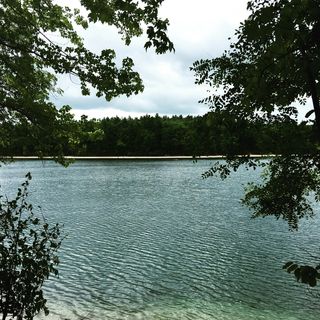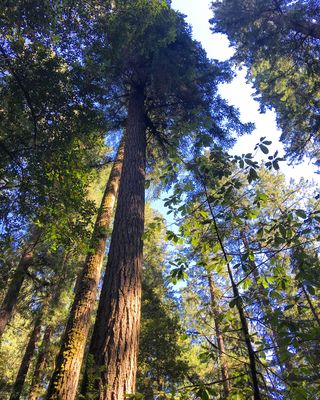Environment
Nature Therapy
Exposure to nature can quiet the rumination of a worried mind.
Posted August 30, 2016 Reviewed by Abigail Fagan

We need the tonic of wildness...At the same time that we are earnest to explore and learn all things, we require that all things be mysterious and unexplorable, that land and sea be indefinitely wild, unsurveyed and unfathomed by us because unfathomable. We can never have enough of nature. —Thoreau
One major difference between our current lifestyle and that of our evolutionary ancestors is an increasing distance from natural settings with increased urbanization. Does this change have an impact on our mental health? Historically, a remedy for ill health or low spirits, if the means were available, would be to send someone to the quiet of the country or seashore and away from the bustle of the city. The popularity of vacations to beautiful national parks, camping, outward bound, and even local breaks for a picturesque walk in a local green park to clear the mind would speak to some evidence that nature soothes the savage beast. And recently, scientists have been studying the idea of nature therapy with a bit more rigor than a dashed-off prescription for a hike.
We are far removed from the natural world of our ancestors: more than 50% of people now live in urban areas (increasing to >70% by 2050). Increased urbanization is associated with increased levels of mental illness, particularly anxiety and depression. Growing up in a rural setting correlates with a less acute stress response, and exposure to green space significantly correlates to a positive effect on well-being in a large two-decade study. Images and sounds of a natural environment can decrease stress in people exposed to negative stimuli. A large survey of mental health and neighborhood green space in Wisconsin showed a significant correlation between the availability of nature and lower levels of depression, anxiety, and stress. There are many studies showing a similar relationship between nature exposure, relaxation, and well-being. But how does exposure to green space help us relax and unwind, exactly?

Dr. Gregory Bratman’s group at Stanford has published a couple of papers following a small group of healthy volunteers told to go for a 5-kilometer walk in the San Francisco Bay area. Half walked along a busy street while the other half went for a scenic walk with beautiful views of the mountains and the bay. The nature walk resulted in decreased anxiety, rumination, and negative feelings, and even increased performance on cognitive tests compared to the walk along a busy street. Later, the same researchers did MRIs and measured blood flow in brain areas of healthy people who went on a 90-minute walk in the same urban vs. more natural setting. They found that the nature walkers had reduced activity in a particular brain region, the subgenual prefrontal cortex. This area of the brain is associated with rumination, or worrying about the same issues over and over, a problem described often in depressive and anxiety disorders.
Japanese researchers have long been interested in so-called forest therapy for a variety of physical and mental ailments, and they too have been studying brain functioning and exposure to nature. Ryota Sakurai’s group published a paper looking at PET scans of older adults. Those who reported going out less frequently had higher depression scores and lower activity scores of the orbital prefrontal cortex of the brain.
So there we have it. In a world and environment where our brains are working overtime and we think and roll over ideas and worry, exposure to nature seems to get us out of our heads, with likely positive longitudinal benefits. In the hyper-urban world to come, designing accessible, safe green spaces may help the mental health of the population, and preserving our natural landscapes to be enjoyed by our descendants will continue to be a national imperative. In the meantime, a prescription for a nice weekend hike could have some real, measurable brain benefits.


